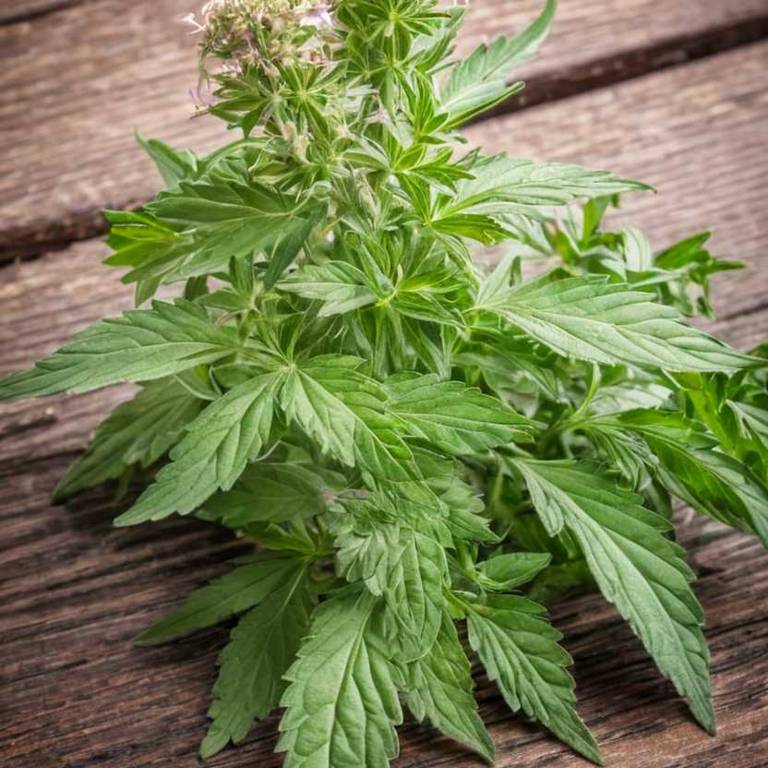Common Boneset (Eupatorium cannabinum)
Common Boneset (Eupatorium cannabinum) is a member of the Asteraceae family, native to Europe, Asia, and North Africa. Traditionally, its leaves, stems, and flowers have been used for decoctions, infusions, and poultices.
This herb is particularly valued for its diuretic, anti-inflammatory, and bitter actions, and has a long history of use in european herbal medicine, mediterranean herbal traditions, and native american herbal medicine.

Quick Facts / Key Information
| Common Name | Common Boneset |
|---|---|
| Scientific Name | Eupatorium cannabinum |
| Plant Family | Asteraceae |
| Genus | Eupatorium |
| Species | cannabinum |
| Native Range | Europe, Asia, North Africa |
| Plant Parts Used | Leaves, Stems, Flowers |
| Primary Medicinal Actions | Diuretic, Anti-Inflammatory, Bitter |
| Primary Traditional Systems | European Herbal Medicine, Mediterranean Herbal Traditions, Native American Herbal Medicine |
| Historical Preparation Methods | Decoction, Infusion, Poultice |
Botanical Identity
- Scientific Name
- Eupatorium cannabinum
- Common Name
- Common Boneset
- Synonyms / Alternative Names
- Common Hemp, White Boneset, Indian Hemp
- Plant Family
- Asteraceae
- Genus
- Eupatorium
Botanical Description
- Growth Habit
- Perennial herbaceous plant.
- Height
- It typically grows to a height of 1 to 2 meters.
- Leaves
- Ovate leaves with serrate margins, upper surface glabrous and dark green, lower surface pale green with prominent stomatal bands.
- Flowers
- Inflorescence consists of a dense spike of small actinomorphic flowers with white to pale blue petals, five in number, arranged in a whorled pattern along a slender, branching axis.
- Stems
- Erect, unbranched, hairy, with opposite leaves and a distinctive ribbed structure.
Traditional Uses / Historical Use
Traditional Systems
- European Herbal Medicine
- Mediterranean Herbal Traditions
- Native American Herbal Medicine
Historical Preparation Methods
- Decoction
- Infusion
- Poultice
- Herbal Bath
Medicinal Actions
- Diuretic
- In herbal texts, considered a mild diuretic, for elimination-focused applications.
- Anti-inflammatory
- Traditionally described as a warming anti-inflammatory, in inflammation-focused discussions.
- Bitter
- As described in traditional systems, a calming bitter, for digestion-related formulations.
- Carminative
- Historically regarded as a soothing carminative, in relation to gastrointestinal comfort.
Active Compounds
- Flavonoid
- A chemical class commonly identified in plant tissues, especially flowers and leaves.
- Coumarin
- Naturally occurring lactone compounds distributed across various plant tissues.
- Phenolic Acid
- A class of aromatic plant compounds commonly found in leaves, seeds, and stems.
- Terpenoid
- Naturally occurring metabolites widely distributed in leaves, flowers, and roots.
Modern Research Overview
This section is reserved for future summaries of scientific research related to this plant. As additional verified sources are reviewed, relevant study information will be added here.
Safety & Contraindications
- General Precautions
- Reports outlining specific general precautions for this herb are limited.
- Contraindications
- There is insufficient evidence to determine specific contraindications related to this herb.
- Allergies
- Allergic reactions associated with this herb have not been well documented.
- Drug Interactions
- Interactions with prescription medications have not been well documented.
- Toxicity
- The use of this herb has been linked to reported toxic effects.
- Pregnancy & Breastfeeding
- Available information regarding use during pregnancy or breastfeeding is limited.
Preparation & Usage Methods
- Infusion
- Infusions are commonly prepared using hot water to release aromatic and soluble components.
- Decoction
- Decoctions are made by heating plant material in water for an extended time.
- Poultice
- Plant parts are crushed or moistened and placed directly on the body.
- Tincture
- Plant material is macerated in alcohol to create a concentrated liquid extract.
- Powder
- Powdered preparations use finely milled plant parts.
Growing, Harvesting & Storage
Growing / Cultivation
- Soil
- Prefers loamy soil with moderately well-drained conditions. Typically grows best in moderate fertility soils.
- Sunlight
- Thrives in full sun. Tolerates full sun to partial shade.
- Watering
- Prefers well-balanced moisture levels. Tolerates periodic dry conditions.
Medical Disclaimer
The information provided on this page is for educational and informational purposes only. It is not intended to diagnose, treat, cure, or prevent any medical condition. Always consult a qualified healthcare professional before using any herb for medicinal purposes.